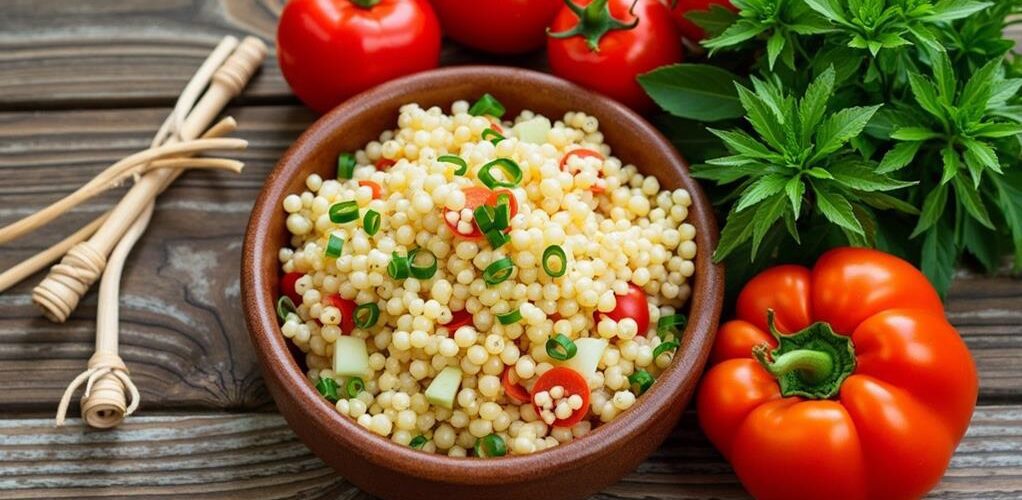
To maintain ketosis on a ketogenic diet, avoid refined carbohydrates such as white bread, pasta, and rice. Alcoholic beverages, especially beer and sweet wines, should be limited due to their sugar content. Honey, maple syrup, and sugary drinks are high in carbs and can disrupt ketosis. High-sugar fruits, including bananas and grapes, and starchy vegetables like potatoes and corn, should also be avoided. Processed snacks, which often contain hidden sugars and trans fats, and sweetened dairy products, including flavored yogurts and ice creams, are not keto-friendly. Learning about these foods will guarantee better adherence to your keto journey.
Key Takeaways
- Avoid refined carbohydrates like white bread, pasta, and rice due to their high carb content.
- Steer clear of sugary beverages, including sodas and sweetened cocktails, as they easily exceed daily carb limits.
- High-sugar fruits such as bananas, grapes, and mangoes disrupt ketosis with their significant carbohydrate content.
- Processed snacks like chips, crackers, and granola bars often contain high levels of refined carbs and sugars.
- Sweetened dairy products, including flavored yogurts and ice creams, can disrupt ketosis due to their high sugar content.
Refined Carbohydrates
When adhering to a ketogenic diet, avoiding refined carbohydrates is essential due to their high carbohydrate content, which can greatly disrupt ketosis. Refined grains, such as those found in white bread, contribute approximately 13 grams of carbs per slice, rendering them unsuitable for maintaining a state of ketosis.
Similarly, cooked white pasta is another significant source of carbohydrates, with around 33 grams per cup, which can quickly exceed the daily carb limits prescribed by a ketogenic diet.
In addition to bread and pasta, white rice is another common refined carbohydrate that should be avoided. Just half a cup of cooked white rice contains about 26.5 grams of carbs, presenting a considerable challenge for anyone attempting to stay within the low-carb parameters of a ketogenic lifestyle.
Moreover, white flour tortillas are another problematic food item, as a single tortilla can contain approximately 36 grams of carbs, making them incompatible with keto dietary goals.
To satisfy cravings without compromising ketosis, individuals can opt for low carb alternatives such as mashed cauliflower or low-carb bread. These alternatives provide the texture and satisfaction of traditional refined grains without the excess carbs that can disrupt ketosis.
Alcoholic Beverages
Although alcoholic beverages are often enjoyed for social and recreational purposes, they pose significant challenges for those adhering to a ketogenic diet. Beer, especially regular varieties, is particularly problematic due to its high carbohydrate content; even light beer contains approximately 6 grams of carbs per 12 oz can, which can disrupt ketosis.
Sweet wines are another culprit, as they often contain added sugars that substantially increase their carb levels, rendering them unsuitable for a keto lifestyle.
Cocktails present additional challenges. They typically incorporate high-sugar mixers, resulting in a rapid accumulation of carbs that can undermine weight loss efforts and hinder ketosis. Liqueurs also tend to be loaded with sugars, contributing significant carbs that make them poor choices for those on a ketogenic diet.
Despite these issues, alcohol moderation and keto friendly alternatives can help mitigate some of these challenges. Opting for dry wines, spirits like vodka or gin mixed with soda water, and monitoring alcohol intake can help maintain ketosis.
However, it is essential to remember that excessive alcohol consumption can delay the onset of ketosis and negatively impact overall health, underscoring the importance of moderation.
Sweeteners and Sugary Products
Sweeteners and sugary products such as honey, maple syrup, sugary sodas, and many liqueurs contain high carbohydrate counts that can disrupt ketosis and cause blood sugar spikes.
For instance, a single tablespoon of honey or maple syrup can greatly impact daily carb limits, while a 12 oz can of Coca-Cola often exceeds the entire daily allowance for a keto dieter.
To maintain ketosis, it is advisable to opt for low-carb alternatives like sugar-free sodas and sparkling water with natural flavors.
Additionally, look for low glycemic index options to help maintain stable blood sugar levels and avoid hidden sugars in products.
High Carb Counts
Steering through the landscape of sweeteners and sugary products is vital for maintaining the low carbohydrate intake required by a ketogenic diet. High-carb items like honey and maple syrup, with approximately 17 and 13 grams of carbohydrates per tablespoon respectively, can greatly hinder your progress. Consuming such sweeteners can quickly add up, making it difficult to stay within the daily carb limits necessary for ketosis.
Additionally, sugary beverages such as a 12 oz can of Coca-Cola, containing around 39 grams of carbohydrates, not only exceed the typical daily carb allowance but also lack nutrient density. These drinks offer little to no nutritional benefits, making them poor choices for anyone aiming for a balanced and effective meal planning strategy on a keto diet.
High sugar content combined with low nutrient value can derail the metabolic state of ketosis, which the diet aims to maintain.
For those looking for alternatives, sugar-free options like stevia or erythritol are preferable. These substitutes contain little to no carbohydrates, allowing you to enjoy a sweet taste without compromising your dietary goals.
Making informed decisions about sweeteners and sugary products is fundamental for sustaining a ketogenic lifestyle.
Blood Sugar Spikes
Maintaining stable blood sugar levels is a cornerstone of the ketogenic diet, and the consumption of high-carb sweeteners and sugary products can jeopardize this objective. Sweeteners such as honey and maple syrup, containing approximately 17 grams and 13 grams of carbohydrates per tablespoon respectively, can greatly contribute to blood sugar spikes. This rapid increase in blood glucose levels can trigger an insulin response, disrupting ketosis and undermining the metabolic effects aimed for in a keto diet.
Sugary sodas, like Coca-Cola, present a more considerable threat, with around 39 grams of carbohydrates per 12 oz can, often surpassing the daily carb allowance for many keto dieters. Additionally, many processed sweetened products, including flavored yogurts, contain added sugars that can raise their carbohydrate content, making them unsuitable for maintaining stable blood sugar levels.
| Item | Carbohydrates (g) |
|---|---|
| Honey (1 tbsp) | 17 |
| Maple Syrup (1 tbsp) | 13 |
| Sugary Soda (12 oz) | 39 |
| Flavored Yogurt (1 cup) | Varies, often high |
| Processed Sweetened Products | Varies, often high |
Avoiding these high-carb sweeteners and sugary products is essential to prevent blood sugar spikes and maintain the metabolic stability required for the ketogenic diet.
High-Sugar Fruits
When adhering to a ketogenic diet, it is important to be aware of the natural sugar content and glycemic index of fruits, as high-sugar fruits can greatly impact carbohydrate intake.
For instance, bananas, grapes, apples, mangoes, and cherries all contain over 24 grams of carbs per serving, which can easily disrupt ketosis.
Instead, focusing on low-carb options, such as berries, can satisfy sweet cravings without exceeding carb limits.
Understanding the carb count of these fruits is vital for maintaining the low carbohydrate levels required for effective keto dieting.
Natural Sugar Content
Steering through the intricacies of the ketogenic diet requires a keen understanding of carbohydrate content, particularly from natural sugars found in high-sugar fruits. High-sugar fruits such as bananas, which contain about 24 grams of carbohydrates per medium fruit, are unsuitable for maintaining ketosis.
Similarly, grapes, with approximately 27 grams of carbs per cup, can quickly cause one to exceed the daily carb limits essential for a keto diet. Apples also pose a challenge, averaging around 19 grams of carbohydrates per medium apple, consequently contributing to potential disruptions in ketosis.
Mangoes are particularly high in sugar, with about 35 grams of carbs in a single medium fruit, rendering them a poor choice for keto dieters.
However, not all fruits need to be avoided. Berries, such as raspberries and strawberries, offer viable fruit alternatives. Raspberries contain about 1.7 grams of net carbs per ¼ cup, and strawberries contain about 3.4 grams per ¼ cup, making them more keto-friendly options.
For those seeking sweetness while adhering to a ketogenic lifestyle, sugar substitutes like stevia or erythritol can be utilized, providing a way to enjoy sweet flavors without the high carbohydrate content, thereby supporting the maintenance of ketosis.
Glycemic Index Impact
Understanding the glycemic index (GI) of high-sugar fruits is vital for individuals adhering to a ketogenic diet. Fruits such as bananas, grapes, apples, and mangoes possess high carbohydrate content and raised glycemic indices, which can greatly disrupt ketosis.
For instance, a medium banana contains up to 24 grams of carbohydrates, while a cup of grapes offers approximately 27 grams. Even seemingly healthy options like apples carry around 25 grams of carbs per medium-sized fruit. Mangoes are particularly detrimental, providing about 50 grams of carbohydrates per medium fruit, making them one of the worst choices for keto dieters.
The high glycemic index of these fruits leads to rapid spikes in blood sugar levels, counteracting the fat-burning benefits that ketogenic diets aim to achieve. To maintain ketosis, it is advisable to reflect on fruit alternatives with lower carbohydrate content and glycemic indices.
Low carb options such as berries, including strawberries and raspberries, can serve as suitable replacements. These fruit alternatives provide essential nutrients without compromising the low-carb requirements vital for sustaining ketosis.
Carb Count Awareness
Recognizing the impact of high glycemic index fruits on blood sugar levels is only part of the equation; equally important is a thorough awareness of their carbohydrate content for those dedicated to a ketogenic diet. High-sugar fruits such as bananas, which contain approximately 24 grams of carbs per medium fruit, are unsuitable for maintaining ketosis.
Similarly, grapes, with around 27 grams of carbs per cup, can considerably affect daily carbohydrate limits. Apples, another popular fruit, have about 25 grams of carbs per medium fruit, necessitating stringent portion control for keto adherents.
Mangoes, particularly high in sugar, contain around 31 grams of carbs per medium fruit, making them a poor choice for those following a ketogenic regimen. Even watermelon, despite its invigorating qualities, contains about 11 grams of carbs per one-cup serving and should be consumed in moderation.
For those on a keto diet, understanding these carb counts is essential. Opting for fruit alternatives such as berries, which generally have lower carb content, or incorporating carb substitutes like avocados, can help maintain ketosis while still enjoying nutritious and satisfying foods.
This awareness ultimately supports the dietary goals of those committed to a ketogenic lifestyle.
Starchy Vegetables
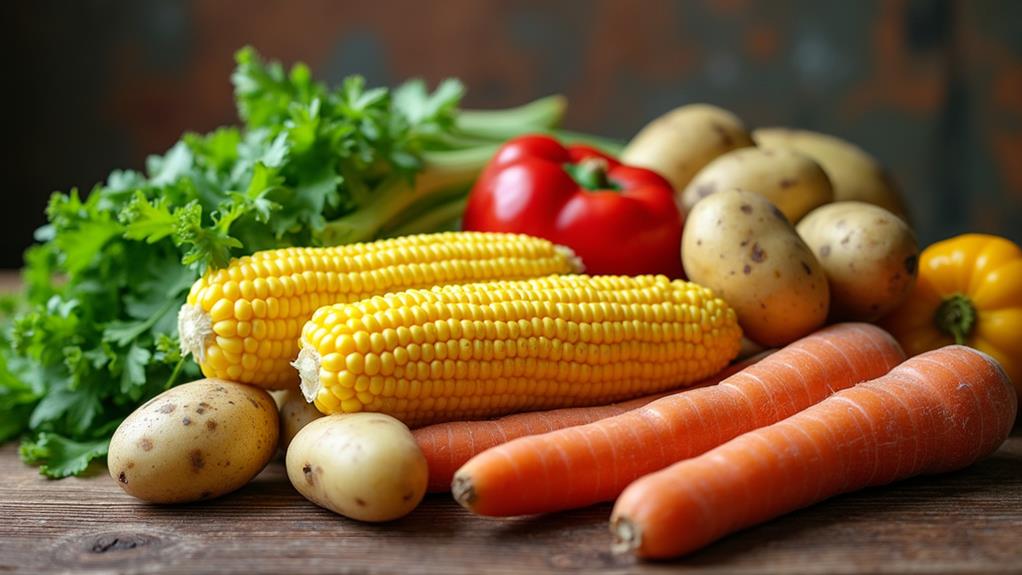
Many vegetables are celebrated for their health benefits, but when following a ketogenic diet, certain starchy varieties should be avoided due to their high carbohydrate content.
Starchy vegetables like potatoes, corn, and sweet potatoes are rich in carbs, making them incompatible with the low-carb requirements of a keto diet. For example, a medium potato contains about 37 grams of carbs, which can easily exceed the typical daily carb limit of 20-50 grams for those on keto.
Similarly, a medium-sized sweet potato has approximately 20 grams of carbs, further contributing to a carb intake that can disrupt ketosis. Corn is another starchy vegetable to avoid, as it contains around 27 grams of carbs per cup.
Monitoring ketone levels regularly can help guarantee you stay within the required carb limits and maintain ketosis effectively.
Instead of starchy vegetables, consider low carb alternatives that are more suitable for a ketogenic lifestyle. Here are some vegetable substitutions to keep your carb intake in check:
- Leafy greens: Spinach, kale, and lettuce are excellent low-carb options.
- Zucchini: Use it as a substitute in dishes like zoodles (zucchini noodles).
- Cauliflower: Ideal for making cauliflower rice or mash.
- Bell peppers: Low in carbs and great for adding color and crunch to meals.
These substitutions guarantee you remain within your carb limits while enjoying a variety of nutritious vegetables.
Processed Snacks
Processed snacks pose significant challenges for those adhering to a ketogenic diet due to their high carbohydrate content. For instance, chips and crackers can contain up to 15 grams of refined carbohydrates per serving, making it difficult to maintain ketosis. Granola bars, often perceived as healthy, may have as much as 20 grams of carbs per bar, primarily from added sugars and grains. Similarly, popcorn, a popular snack, contains approximately 15 grams of carbs per three-cup serving, which can quickly disrupt daily carb limits.
Further complicating matters, many packaged snack foods are laden with unhealthy trans fats and preservatives. These ingredients not only contribute to negative health effects but can also lead to potential weight gain, counteracting the benefits of a ketogenic diet.
To stay on track, considering snack alternatives is paramount. Nuts like almonds, which contain only 2.6 grams of net carbs per ounce, and cheese are excellent low-carb options. Practicing mindful eating by choosing these alternatives can help maintain ketosis and promote better overall health.
| Snack Type | Carbs per Serving |
|---|---|
| Chips/Crackers | Up to 15 grams |
| Granola Bars | Up to 20 grams |
| Popcorn | Approximately 15 grams |
Sweetened Dairy Products
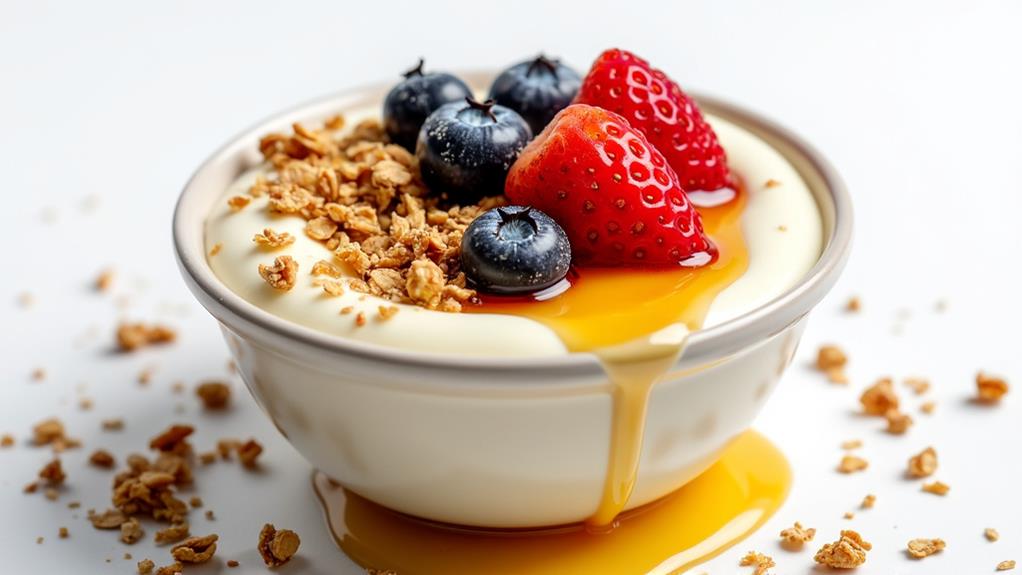
Though dairy products are often considered a staple for many diets, sweetened varieties can jeopardize the success of a ketogenic regimen due to their high carbohydrate content. Flavored yogurts and ice creams are common culprits, with flavored yogurts containing up to 20g of carbs per serving and ice creams having around 20-30g of carbs per serving. Such high carb counts can easily disrupt ketosis.
Many sweetened yogurts have particularly high sugar content, with some brands containing 15g or more of sugar per cup, making them unsuitable for a keto diet. Even seemingly healthy options like low-fat yogurts can be misleading as they often compensate for reduced fat with added sugars, resulting in higher carb counts. Additionally, high-lactose products may cause digestive issues and disrupt ketosis for some individuals.
To maintain ketosis while still enjoying dairy, consider the following:
- Plain Greek Yogurt: Contains about 6g of carbs per serving and is a good choice for those on a keto diet.
- Dairy Alternatives: Unsweetened almond milk or coconut yogurt can be excellent lower-carb options.
- Flavor Enhancements: Use vanilla extract or stevia to add flavor without increasing carb content.
- Homemade Keto Ice Cream: Allows control over ingredients, ensuring it remains keto-friendly.
Frequently Asked Questions
What Foods Are Not Allowed on Keto Diet?
In keto meal planning, avoiding high-carb snacks such as bread, pasta, rice, sugary items, starchy vegetables, high-sugar fruits, and processed foods is essential to maintaining ketosis and achieving ideal results in weight loss and health.
What Foods Don't Break Ketosis?
Foods that don't break ketosis include low carb snacks like macadamia nuts and chia seeds, keto-friendly vegetables such as spinach, kale, and broccoli, and healthy fats from sources like avocados, olive oil, and fatty fish.
What Are the Top 10 Keto Foods?
The top 10 keto foods for effective meal planning include fatty cuts of meat, avocados, leafy greens, nuts, seeds, and full-fat dairy. These ingredients provide healthy fats and low carbohydrates, supporting balanced, nutrient-dense keto meal ideas.
Can I Eat a Banana on Keto?
Given their high carbohydrate content, bananas are not suitable for a ketogenic diet. Instead, consider banana alternatives like low-carb fruit substitutes, such as raspberries or strawberries, which better align with the dietary requirements of ketosis.
Conclusion
Adhering to the keto diet necessitates the avoidance of certain food categories to maintain the metabolic state of ketosis. Refined carbohydrates, alcoholic beverages, sweeteners, sugary products, high-sugar fruits, starchy vegetables, processed snacks, and sweetened dairy products can impede ketosis by elevating blood glucose levels. Adherence to these dietary guidelines guarantees the effective management of carbohydrate intake, thereby promoting the metabolic benefits associated with the ketogenic diet, including improved energy levels and potential weight loss.
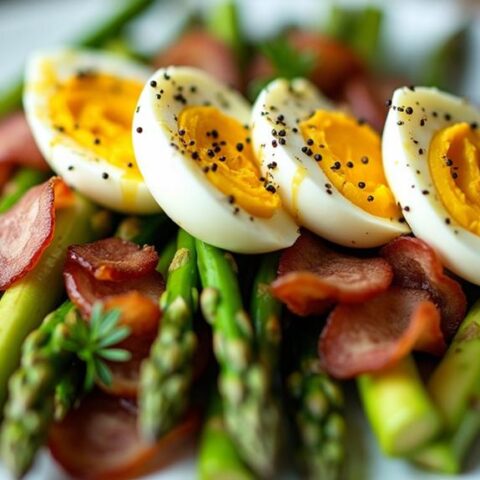
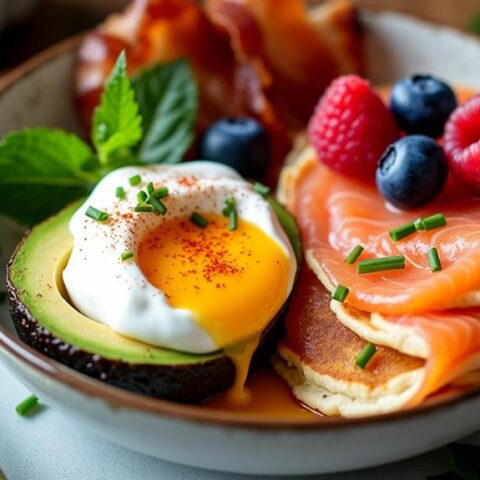
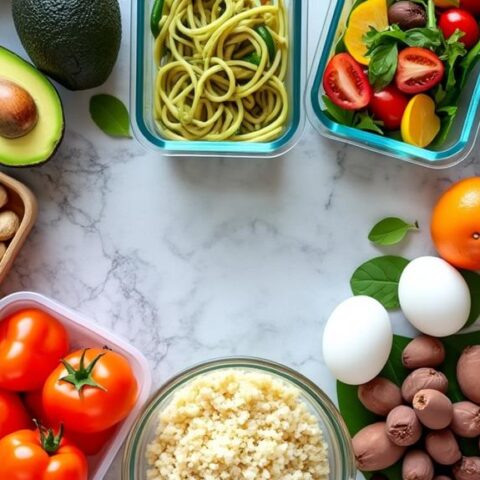

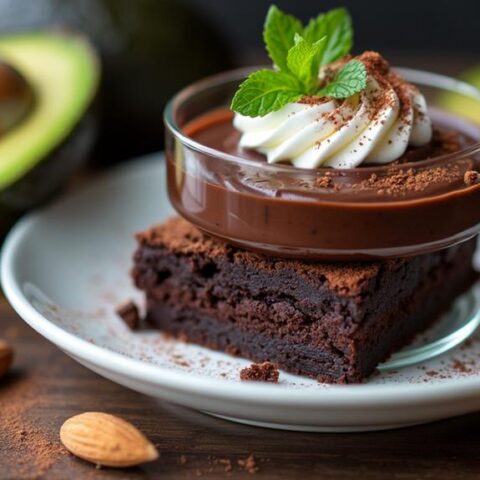
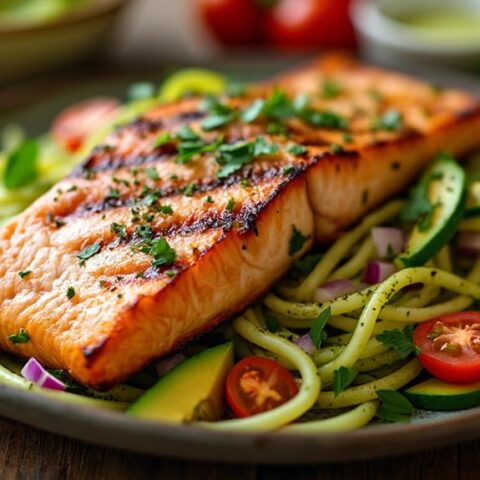




No Comments